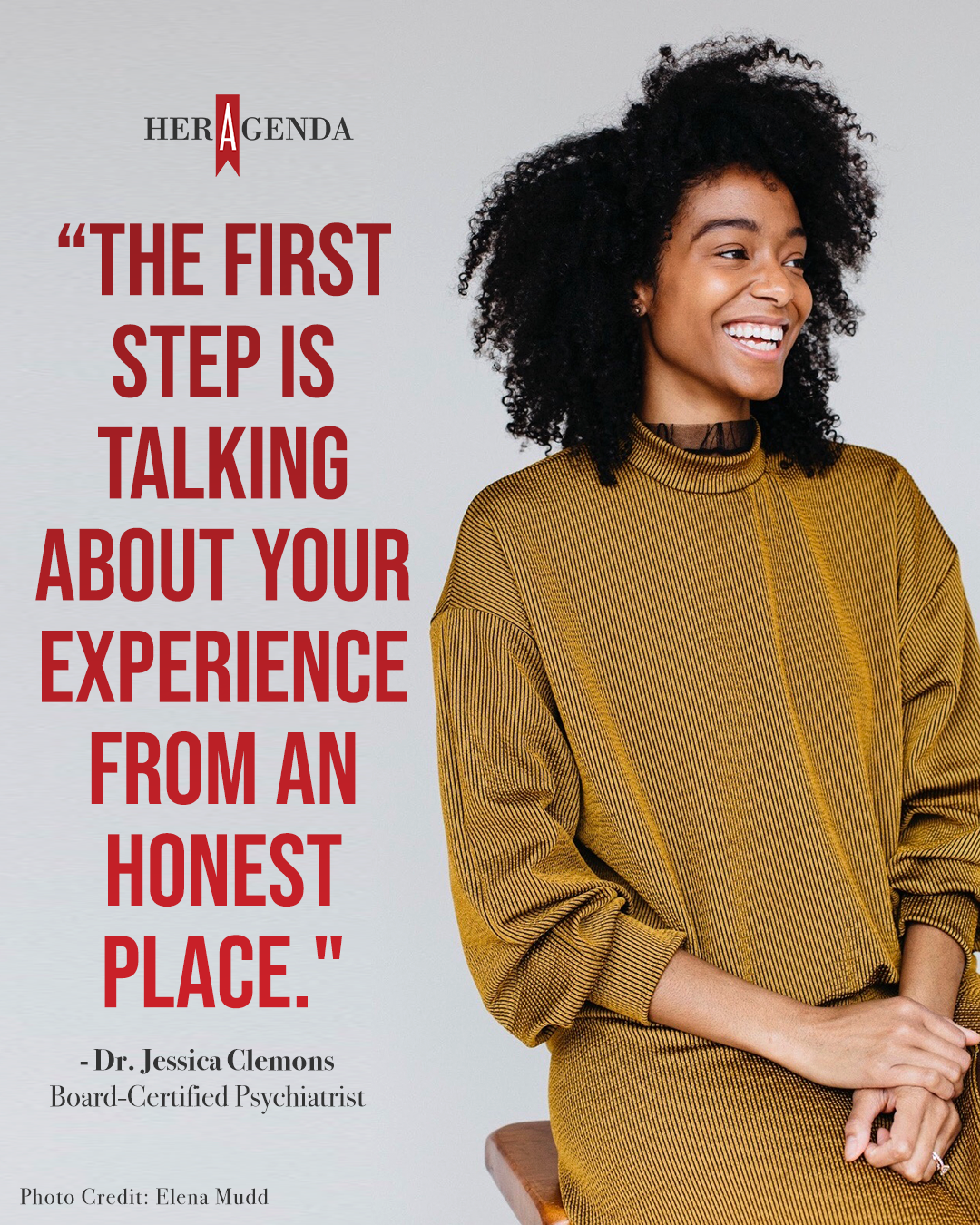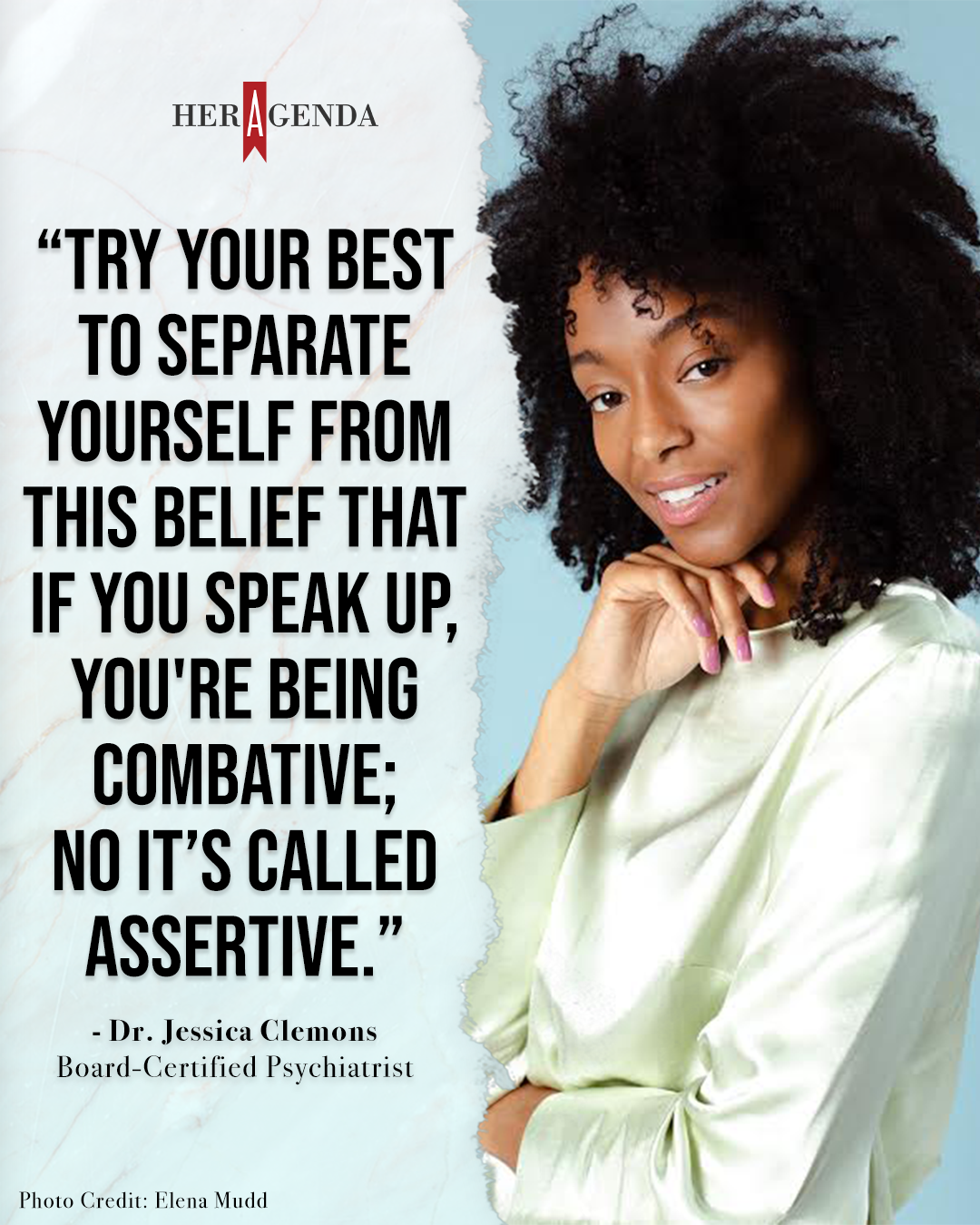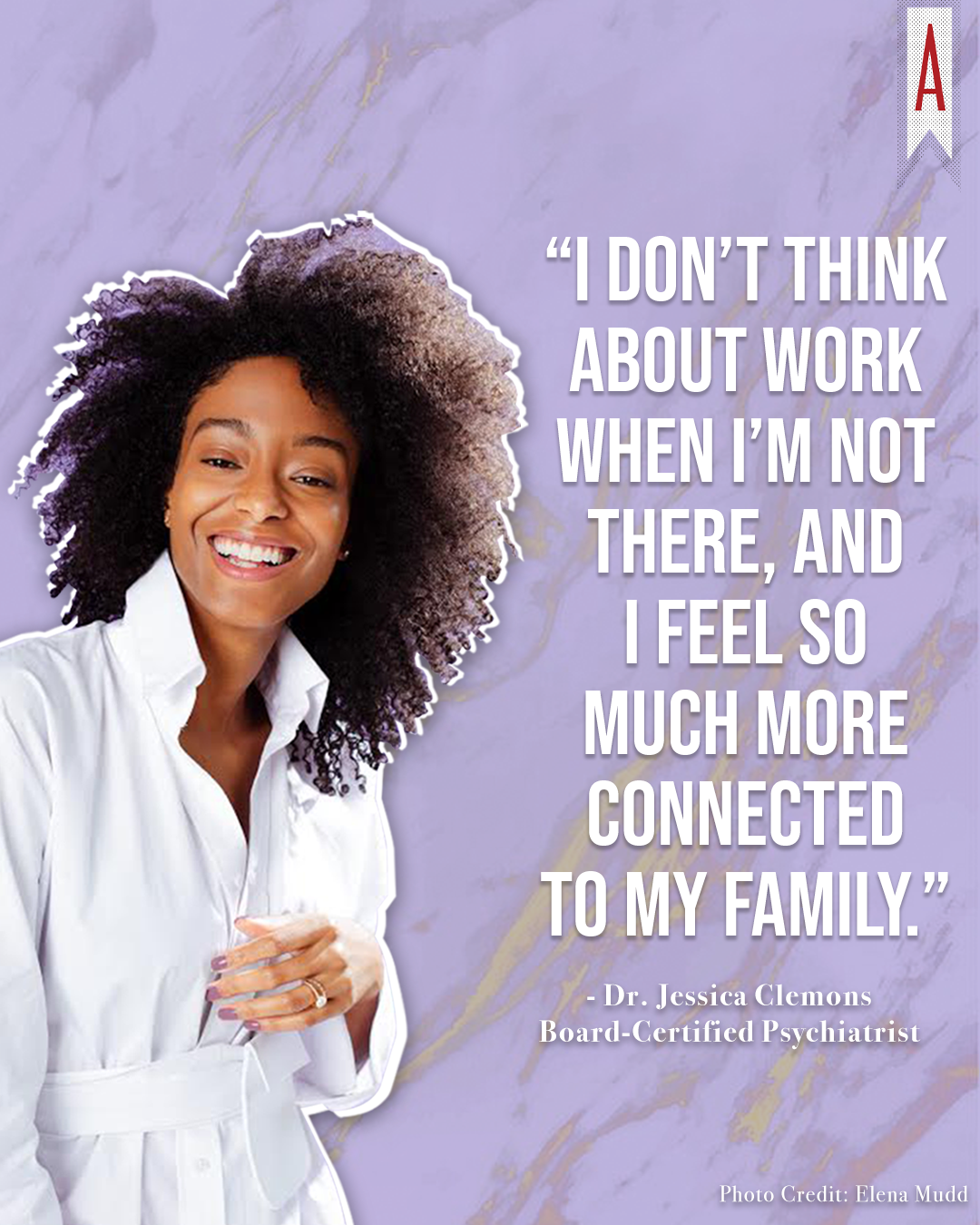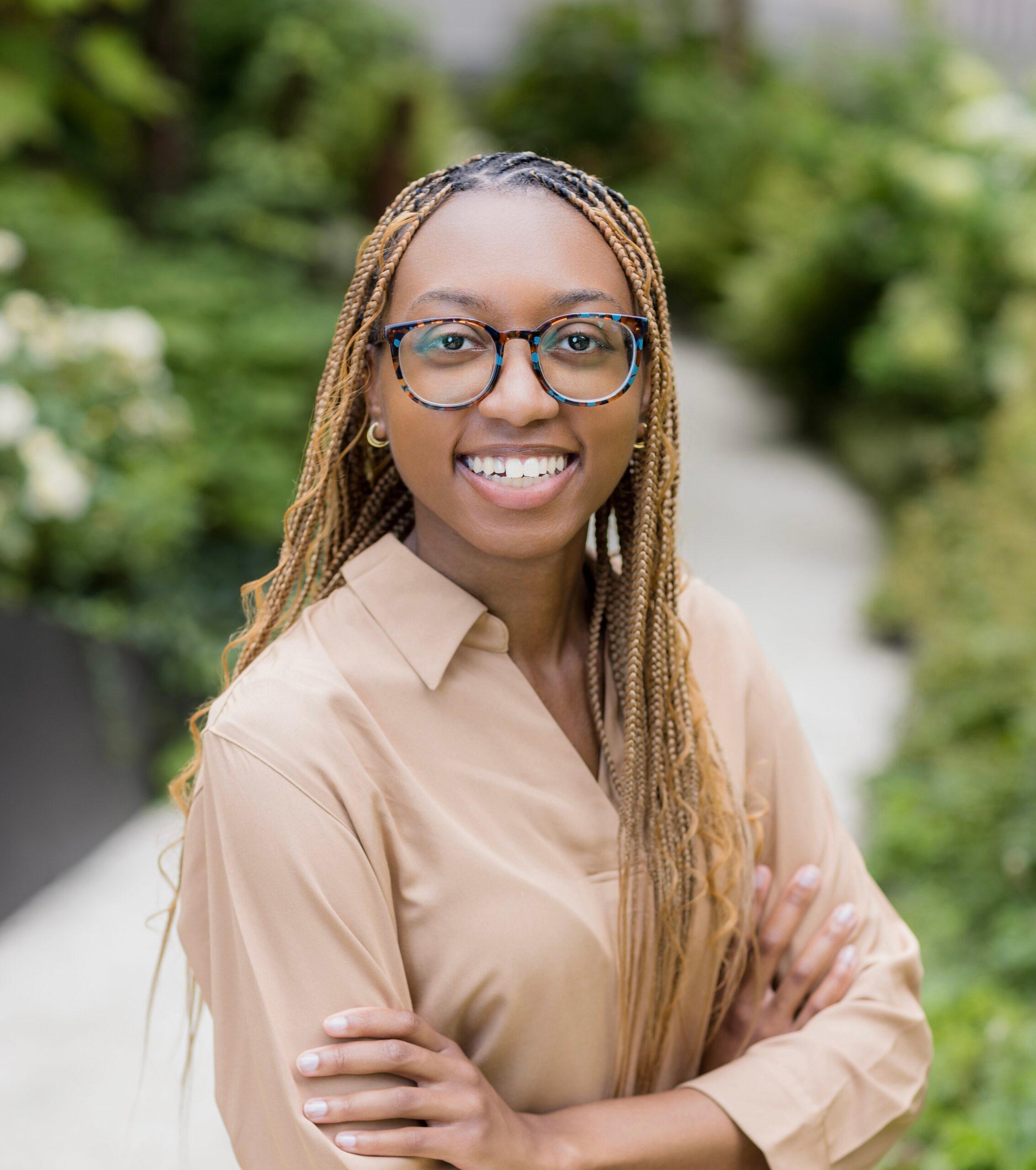Dr. Jessica Clemons, oftentimes referred to as Dr. Jess, teaches us that our minds are our greatest assets. As a board-certified psychiatrist, Dr. Jess inspires others to take control of their mental health journeys by facilitating conversations through her platform and #BeWell conversation series.
Through her series, Dr. Jess speaks with many well-known guests such as Jessie Reyez and Rapsody, who aid in normalizing having open conversations about mental health. She also hosted “In Session Live: With Dr.Jess” on VH1, a show formatted as a live therapy session.
More recently, her audible original, ‘Be Well,’ further extends her message and mission. It’s an audiobook that aims to knock down mental health stigmas and acts as a guide for not only understanding mental health conditions but actively taking care of them too. Many reviews note that it provides both a “personal” and “informative” experience for the listener.
In our conversation, Dr. Jess shares what empowered her to take hold of her own mental health journey and ways other women can adopt that same practice.
Her Agenda: Having access to mental health resources is something that you speak about in your audiobook. Can you talk more about that and how this process all began?
Dr. Jessica Clemons: ‘Be Well’ was an extension of the work I’ve been doing with social media. Initially, I was using Instagram live primarily weekly to discuss topics, answer questions, but the important part for me was that it was relatable. I was approached by audible, and I felt like that was the best platform for me. When people are experiencing mental health symptoms like depression, the last thing you can really focus on doing is reading a book. I felt it was really continuing that mission I had about it being accessible and relatable. In ‘Be Well,’ I talk about some of the common barriers to getting treatment or to accessing care. I also share examples of different mental health conditions that are common and not so common. It is intended to be a guide for people to be able to access and understand the mental health process, so it truly is a guide to better mental health for all.
-Resist the trend of setting these resolutions. I think if you truly want to develop some change, you need to think about setting SMART goals, which is an acronym for specific, measurable, actionable, realistic, and time-specific goals.
Dr. Jessica Clemons
Her Agenda: Before the audible, there was ‘Be Well’ conversation series. Can you talk about that and did you imagine that the audible would have the impact that it has had thus far? How have you seen that impact manifest?
Dr. Jessica Clemons: I was pivoting from using social media and Instagram as a tool for educating people about mental health to let’s just see what this would be like to engage in front of a live audience. I started doing these live conversations. It is intended to sit with someone who may have a large following and explore their life in a way that people listening in can get some inspiration. It’s trying to normalize the conversation. That was the main goal. I’ve gotten messages from people about how it has helped them to feel that they can better support their loved one, feel more confident about starting treatment, or knowing that they can speak up.

Her Agenda: You also talk about dismantling mental health stigmas. What tips can you provide for people when it comes to doing their part in dismantling these stigmas?
Dr. Jessica Clemons: The first step is talking about your experience from an honest place. Part of the stigma is that there is a lot of secrecy. Some people are comfortable talking about going to get a physical, but we don’t talk about openly, going to the therapist. I’m not saying that’s where someone should start if they’re not comfortable, but talk about how you’re feeling and be honest. Talk about the stress that people are under, especially these days. What I think that will start to do is feel like this is a normal conversation that we can have and it shouldn’t be so surprising if someone does open up that they are seeing a therapist. I think we’ve come a very long way, but you have to start with the conversation.
-If I’m not showing up as my full self, then I can’t be there fully for my family.
Dr. Jessica Clemons
Her Agenda: Conversation is key. When we talk about motherhood, can you talk about the importance of continuing to take care of your mental health as a mother as well?
Dr. Jessica Clemons: This is still a journey. I am still very much in the beginning but I think for me what has helped is prioritizing my needs. I’m really paying attention to when I need a nap and I’m lucky to have a really amazing husband and so he’ll say, okay take your nap and I’m watching baby and vise versa. If I’m not showing up as my full self, then I can’t be there fully for my family. I pay attention to what my needs are and I try to meet them. Anyone who has a lot on their plate, [should try getting] comfortable with knowing it doesn’t have to be perfect. If you’re showing up with the best you can give, that’s the best you can give and that’s great.
Her Agenda: Can you talk about the importance of acknowledging the mental health of women in the workplace? Whether it has to do with allocating time for mental health breaks, I would love to get your perspective on that.
Dr. Jessica Clemons: With work from home still remaining a primary chunk of the workforce, more people have thought about work-life balance. I think about women in particular who tend to be responsible for childbearing and if they work, fulfilling both roles. I think in the workplace especially, employers should be open to understanding that if you have an employee who is working from home and she needs to end early or she has an interruption, not making that employee feel bad or feel like there is something wrong. A lot of what I talk about is self-empowerment [and] setting those boundaries. It can be like hey, my day ends at five, my day ends at five, and not taking those additional opportunities or saying yes to something if you know it is out of the window time that you can commit. That’s hard, but boundaries are going to keep you dealing less with feeling like your cup is running empty. I know we can hope our employers get it, hope HR gets it, but if they don’t, you have to do what’s best for you and your family and at the end of the day.
-I realize that most people need to work so you don’t want to blow up all of your work relationships, but particularly if it’s causing true problems to your mental health, sometimes the best thing to do is start looking for another place to work.
Dr. Jessica Clemons

Her Agenda: In the past, you have spoken about standing up for yourself in toxic spaces and thriving while doing so. As a woman entering different spaces that may feel toxic, how have you navigated that, and what are some tips that you have for others entering those same spaces?
Dr. Jessica Clemons: I realize that most people need to work so you don’t want to blow up all of your work relationships, but particularly if it’s causing true problems to your mental health, sometimes the best thing to do is start looking for another place to work. But, thinking about that as not the main outcome for people, I think looking for true allies is important. You’re looking for those people who have some power so that they can empower you. There’s a lot of focus groups within organizations and so that is where you can find out if other people are experiencing the same things and really find the support and comradery.
Don’t suffer alone. Look for other people that can possibly relate, but also give their expertise and experience. The hard part is we all have to find our voice and sometimes speak up. If you are experiencing getting bulldozed in meetings and no one is listening to you, how can you find a way to communicate that? When you’re doing that, try your best to separate yourself from this belief that if you speak up, you’re being combative; no it’s called assertive. That is something that I had to learn in my journey. During residency, I felt like I was not fitting in and having a lot of trouble with a voice that I always felt was very powerful. I was always comfortable and confident using it, but in certain settings, I felt disempowered. I learned how to use my voice and I learned that it was important because at the end of the day, my silence, letting things just happen to me, was causing me anxiety.

Her Agenda: From your own personal experiences, what women have you found to support you throughout your journey thus far?
Dr. Jessica Clemons: I can speak to [my time in] medical school. For me, it was a group of three other women. We were all from very different backgrounds. It was the late-night studying [and] we had a really funny name [that we called ourselves]. We are still really great friends. One has a baby, one recently got married, and so I found that those relationships were really what helped me to thrive.

Her Agenda: As we enter the new year, people are excited, but also anxious. What tips do you have for people as they embark on new journeys as they enter the new year?
Dr. Jessica Clemons: Resist the trend of setting these resolutions. I think if you truly want to develop some change, you need to think about setting SMART goals, which is an acronym for specific, measurable, actionable, realistic, and time-specific goals. I think the closer that you can make a goal fit that, the more likely you are to achieve it.
Really prioritize self-care, and yes that includes the maintenance and the work that we do on our hair, but also eating well, exercising, sleeping, [and] saying no. Not overextending ourselves [and] finding a way to prioritize that. I think especially over the last few years, we’re really prioritizing what matters the most in life. For me, it has been family and that’s been pretty radical for me. [When] I’ve shut the workday down, I don’t think about work when I’m not there, and I feel so much more connected to my family.
[Editor’s note: This interview has been edited for length and clarity.]









